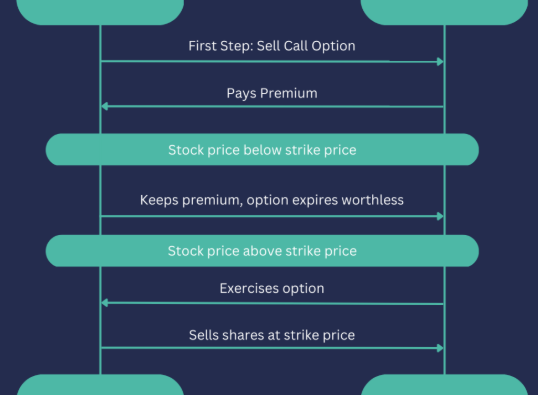
Value investing, a strategy centered on identifying and purchasing undervalued stocks, has long been favored by seasoned investors who prioritize long-term gains over short-term speculation. Instead of chasing trends, value investors look for businesses that are fundamentally strong but temporarily overlooked by the market. This blog explores notable success stories that showcase the effectiveness of this patient and analytical approach to investing.
What Is Value Investing?
At its core, value investing is about finding companies whose shares are trading below their intrinsic worth. This strategy involves in-depth analysis of financial statements, business models, and market conditions to uncover opportunities where the stock price does not reflect the true value of the business. Unlike speculative trading, value investing requires patience, discipline, and a thorough understanding of market fundamentals.
Influential Figures in Value Investing
One of the most recognized names in the value investing world is Warren Buffett. His philosophy of investing in businesses with strong fundamentals, consistent earnings, and durable competitive advantages has made him one of the most successful investors of all time. Buffett’s commitment to buying great companies at fair prices—and holding them for the long haul—has yielded exceptional results.
Global Success Stories in Value Investing
Berkshire Hathaway
In the early 1960s, Warren Buffett began purchasing shares of Berkshire Hathaway, then a struggling textile company. He recognized that its assets were undervalued and later transformed it into a holding company. Today, it owns significant stakes in a variety of businesses, demonstrating how strategic vision and value-based decisions can turn a faltering company into a conglomerate.
Coca-Cola
Buffett’s decision to invest in Coca-Cola after the 1987 market crash exemplifies classic value investing. At a time when investor sentiment was low, he recognized the company’s strong global brand and loyal customer base. Over the decades, the stock has appreciated significantly, proving the merits of buying fundamentally sound companies during periods of market pessimism.
McDonald’s
Investor Bill Ackman identified an opportunity in McDonald’s in 2005. Although the company had stable revenue, its undervalued real estate holdings were not reflected in the stock price. His investment yielded strong returns once the market recognized the hidden value within the business’s property assets.
Apple Inc.
Investors who recognized Apple’s innovation capabilities and customer loyalty during its earlier growth phases were rewarded with substantial long-term gains. Despite being a tech company, Apple offered qualities that value investors seek—sustainable competitive advantages and strong earnings growth.
American Express
Buffett’s investment in American Express in the early 1960s followed a scandal that temporarily damaged its reputation. While the market overreacted, Buffett saw that the business fundamentals remained intact. His timely purchase resulted in significant profits as the company regained investor confidence.
GEICO
Buffett also saw potential in GEICO when the insurer was struggling in the 1970s. He believed in its direct-to-consumer model and anticipated that it would recover. His decision to invest was validated when GEICO rebounded and became a core asset within Berkshire Hathaway.
Noteworthy Value Investments in India
Infosys
As a leading IT services provider, Infosys has delivered consistent growth and profitability. Its scalable business model and strong leadership made it a popular choice for value-focused investors seeking long-term appreciation.
HDFC Bank
Known for its stability and financial discipline, HDFC Bank has been a reliable performer in the Indian banking sector. Its consistent track record of profitability and prudent risk management has made it a solid bet for long-term investors.
Reliance Industries
With its expansion into telecom and retail, Reliance Industries emerged as a strong value pick. Strategic investments and diversification helped the company unlock new revenue streams, rewarding investors with considerable returns.
Maruti Suzuki
India’s largest car manufacturer, Maruti Suzuki, managed to maintain a dominant market position despite increasing competition. Its strong brand equity and efficient production system made it a compelling value investment over the years.
Asian Paints
Asian Paints exemplifies how steady performance and brand strength can create enduring value. Its vast distribution network and innovation-driven approach have allowed it to grow consistently and weather market volatility.
Common Pitfalls to Avoid in Value Investing
Even though value investing is a proven strategy, mistakes can undermine its effectiveness. Here are some common errors investors should avoid:
- Impatience: Value investing requires time. Selling too early can prevent you from realizing the full potential of your investments.
- Price Obsession: Focusing solely on a low price without analyzing company fundamentals can lead to poor choices.
- Ignoring Trends: While value investing often goes against the grain, awareness of broader market conditions is still important.
- Lack of Diversification: Concentrating your entire portfolio in a few stocks increases risk. Diversification helps mitigate potential losses.
- Poor Risk Management: Not having a strategy to handle market downturns or company-specific challenges can be costly.
Final Thoughts
The stories of investors like Warren Buffett and companies like Infosys and Coca-Cola show that value investing, when done right, can deliver impressive results. It’s a strategy rooted in analysis, patience, and conviction. While it doesn’t promise instant rewards, it encourages thoughtful decision-making and long-term thinking—traits that are essential for anyone aiming to build sustainable wealth in the stock market.









